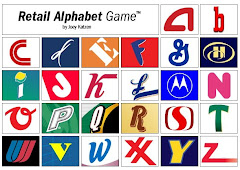The new technology, blog, is an online journal in which people can comment to various posts, which are placed in chronological order with the most recent post at the top of the page. The difference between a blog and a website is the fact that people can respond to what is written on a blog. Blogs can be used as a journal, place for ideas and opinions, or to talk about hot topics. What was "new" for me in using this technology rather than traditional
literacies would be the fact that I was writing backwards, because blogs put the most recent entries at the top and go down chronologically. Also, it was new to type out various topics in order to plan my writing and to just start my thoughts, rather than making sure everything was flowing smoothly between each paragraph.
The change in my conceptual understanding of literacy since the beginning of class has changed drastically. I started out thinking that literacy was simply reading and writing. Now, through all the readings and lectures from class I realize that it is all about reading, writing, viewing, listening, and speaking. Also, I never realized all the various skills and strategies that went along with each one. With reading I figured that you start out learning sounds of letters, then you put those sounds together to make words, and then you put those words together to make a sentence. It is not that easy! There is are so many complexities to literacy. Through the experiences of the course from learning how writers feel when they don't understand how to use the language, to learning how difficult it can be to learn how to read for young readers. Children are not born readers, they have to be taught how to read. As a future teacher, I can never assume that a child already has reading and writing skills.
In order to use a blog I really needed to develop a
commitment to start writing in the blog, and once I started, to write in it at least every day or every other day. Maintaining a blog is not easy, so I had to train myself to remember to write it. I started writing it down in my planner and it became the first thing I thought about before I went to sleep. In terms of knowledge, I had to know how to use the
internet for good research sources, especially since I didn't know much about my topic. It is easy to just click on any link and assume that information is true, but to learn how to filter out the good and bad sources is something that had to be learned. For example, I kept getting information about Prof. Hirsch's book, which led me to believe that the book had legitimate information.
In order to use blogs successfully for authentic purposes for K-8 students, the teacher would have to play a large role in facilitating the blogs. Since an email is needed in order to create a blog, a teacher could create one for the whole class and use it to facilitate discussion on something talked about in class; or the teacher could use it as a way to post homework and assignments from class for students who were absent that day and as a way to correspond with parents. I think it would be fun for kids to make their own blog and use it as a way to document how they have changed over the school year. They would still be learning the writing skills required by the
GLCE's, because students can write formally and informally, and students can critique and edit each others' posts by leaving comments. It would also, be a great way to get them excited about writing,
because it would be something different from the way that they are used to seeing writing in their classes.
Learning to use this technology fits with my current conceptual understanding of literacy, because literacy is something that is constantly changing. In our fast paced, technology centered society, we are moving to more reading and writing being done online. It is important that students learn computer skills in the elementary grades,
because computer use is so
prevalent in high school and college. To me, effective literacy instruction would be to introduce children to the various forms of literacy.
 When I started this project, I honestly had no idea what cultural literacy was. I thought it solely meant to be literate about cultures of the world. That is one aspect of it, but it is obviously so much more. It is about how our culture affects all aspects of our lives and how we respond to it. When I took the cultural literacy test, I think I scored in the 75% range, which I was kind of disappointed with, especially since I love history. But that just goes to show that you cannot be affluent in just one aspect of culture, but in all areas in order to be culturally literate.
When I started this project, I honestly had no idea what cultural literacy was. I thought it solely meant to be literate about cultures of the world. That is one aspect of it, but it is obviously so much more. It is about how our culture affects all aspects of our lives and how we respond to it. When I took the cultural literacy test, I think I scored in the 75% range, which I was kind of disappointed with, especially since I love history. But that just goes to show that you cannot be affluent in just one aspect of culture, but in all areas in order to be culturally literate.

